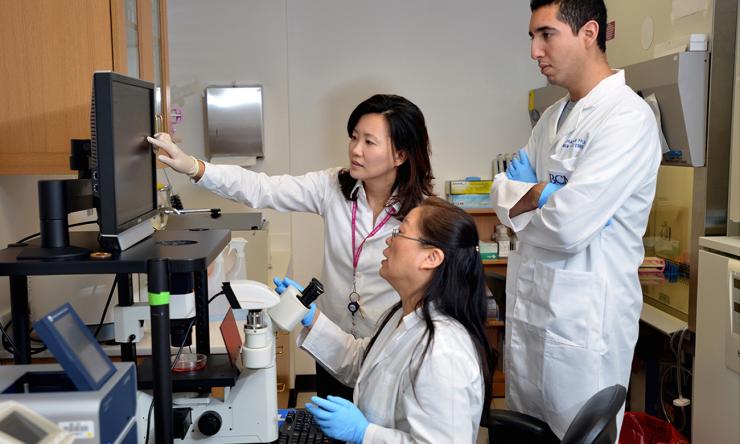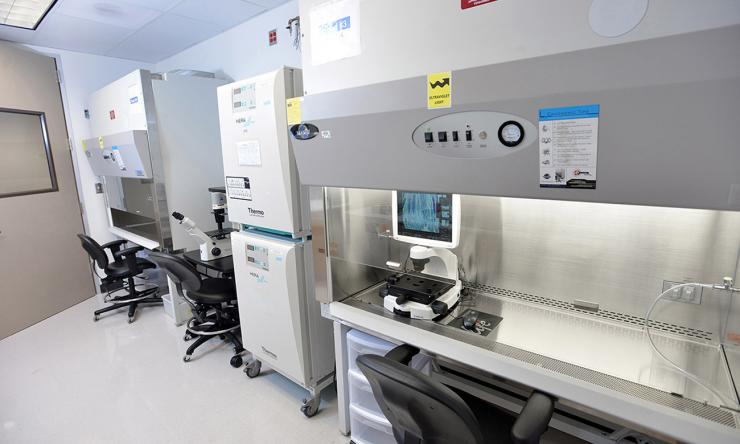About the Core
The ATC Human Neuronal Differentiation and Stem Cell Core is located at the Jan and Dan Duncan Neurological Research Institute. The service list of the core is extensive but focused on production of patient specific induced pluripotent stem cells, gene editing in human pluripotent stem cells, distribution and quality control of produced lines. The core operates under guidelines for BCM Institutional Advanced Technology Cores (ATC) in coordination with NRI/TCH procedures. The Director of the merged core is Aleksandar Bajic, Ph.D. and requests for services can be made on iLabs.
Hands-On Training
We provide intensive hands-on training on human pluripotent stem cell culture for Baylor College of Medicine, MD Anderson, and other Texas Medical Center investigators. View class information.
Human Stem Cell Services
The HSCC offers cost-effective solutions to generate and characterize novel human induced pluripotent stem (iPS) cells for in vitro disease modeling, employing “zero-footprint” technologies. View our services.
Terms and Conditions for use of Core
View and download the form.
Information for Acknowledgement of Cores in Publications
Core Name: Human Stem Cell Core
Personnel: Aleksandar Bajic, Ph.D., Core Director; Hyekyung Park and Anel LaGrone, Research staff
Grants: NIH P30 CA125123 Shared Resource (PI: Osborne) and NIH S10 OD028591 (PI: Kim)
Cells and Quality Control Testing
The HSCC provides a reliable and well characterized source of undifferentiated human ES cells and iPS cells. See more information.
Major Products and Services
- Hands-on training classes and workshops
- Consultation on experimental design
- Human pluripotent stem cell (hPSC) culture services
- Generation of induced pluripotent stem (iPS) cell lines
- Stem cell line characterization (karyotyping and trilineage differentiation)
- Mycoplasma testing
- Customized genome editing of hPSCs using CRISPR/Cas9










